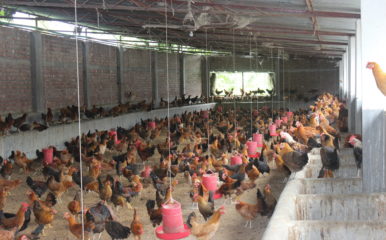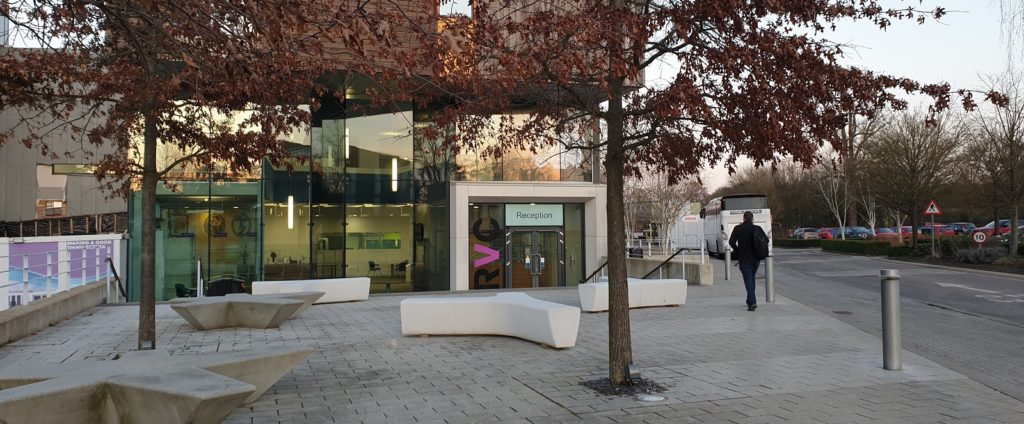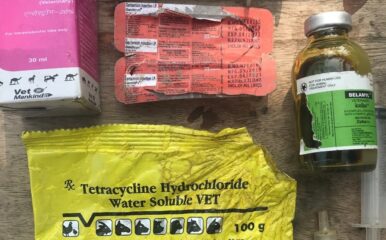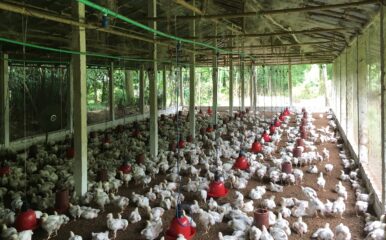
Researcher mobility scheme presents a ‘truly exceptional learning experience’
Published on 22/02/2023

Gerhard/Pixabay
I was thrilled recently to be able to explore RVC, home to cutting-edge research and expertise in veterinary sciences. I was at this world renown institution and lead partner in the One Health Poultry Hub late last year, having been given the opportunity to learn genome-wide association study (GWAS) data analysis in chicken thanks to the Hub’s flexibility fund.

GWAS is an approach that involves rapidly scanning markers across complete sets of DNA, or genomes, to find genetic variations. In the Hub we are using this technique to link the poultry gut health (pathogen load) with its genetic markers.
The first thing I noticed upon arrival at RVC’s Hawkshead campus was its stunning architecture, including beautifully designed buildings and lush green spaces that provide an ideal environment for learning and recreation.
During my visit, I was also impressed by the state-of-the-art facilities and resources available to researchers. The laboratories were equipped with the latest technology and were led by field experts, and I was impressed by their level of knowledge and expertise. It was clear that the RVC is a supportive and collaborative community where students are encouraged to pursue their interests and develop their skills.
GWAS advances
The research mobility programme that I had the opportunity to participate in brought researchers from different backgrounds together to explore the latest advances in GWASs and their applications in poultry health, and we learned under the guidance of Dr Androniki Psifidi and Professor Damer Blake. Dr Psifidi and her team provided a comprehensive pipeline of the GWAS data analysis process, including quality control, data pre-processing, and association testing, which was backed by Professor Blake and his team to provide insight into its relevance to poultry enteric pathogens.
The learning was interactive, with plenty of opportunities for questions and discussions, and I appreciated the hands-on approach in which we used real poultry GWAS data sets, allowing me to apply the concepts and techniques discussed. It was an excellent opportunity to develop my GWAS data analysis skills and gain a deeper understanding of the process, especially as it pertains to poultry genetics.
In addition to the technical aspect of the workshop, I had the opportunity to learn about Dr Psifidi’s and Professor Blake’s own research and the impact it has had on the field of veterinary genetics. Their passion and dedication to research on poultry pathogens and poultry genetics for improving animal health and welfare was truly inspiring.
Mobility researcher programmes offer several key advantages for capacity building, including exposure to new research methods and techniques, cross-cultural exchange and collaboration, access to new resources and facilities, improved language skills and career advancement. This mobility programme was a valuable step in my professional development and provided opportunities for learning and collaboration, access to new resources and facilities, and exposure to different perspectives, all of which have contributed to building my capacity as a researcher.
In conclusion, my experience at RVC was incredibly valuable. The expertise and guidance of Dr Psifidi and Professor Blake, combined with the state-of-the-art facilities and resources I was able to learn on, made this a truly exceptional learning experience. I am grateful for the opportunity to visit and learn, and I look forward to continuing to work with the RVC in the future.


